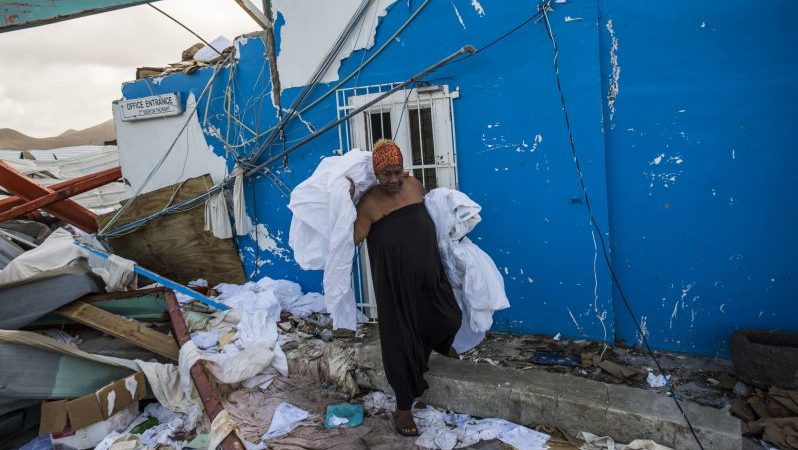After one of the most destructive Atlantic hurricane seasons on record, some Caribbean nations are facing heavy losses.
At UN climate talks in Bonn, such weather disasters, turbocharged by global warming, are discussed under the label “loss and damage”.
Tumasie Blair, a diplomat for Antigua and Barbuda, talked to Climate Home News about why – and how – the negotiations must deliver support to vulnerable communities.
This interview has been lightly edited for clarity.
CHN: As a disaster prone region, the Caribbean is suffering huge losses from hurricanes and other impacts worsened by climate change. How you are coping with this situation?
TB: The Caribbean region has consistently had hurricanes due to its geographical presence. But the intensity of such types of natural disasters has increased in recent decades. After hurricane Irma, the entire island of Barbuda has been evacuated. For the first time in over 300 years, not a single person is living in Barbuda islands, now.
So how we are coping?
The government of Antigua and Barbuda has taken creative ways to accommodate the Barbuda people by creating shelters. Those people will go home when everything returns to normal.
Apart from hurricane Irma, hurricane Maria had destroyed Dominica. As Dominica and Antigua have a close relationship, we are hosting over 2,000 students migrated from there. It has created a burden on us. This is the first time we have a climate refugee problem.
CHN: What is the status of Loss and damage discussion in COP?
TB: The loss and damage discussion is centered on finance. The developing countries are pushing it strongly. But the developed countries are pushing back.
Some sort of financial mechanism should be place here.
CHN: But the five-year rolling work plan on loss and damage does not provide any clear direction on finance except for insurance.
TB: Yes, insurance is one arm to address loss and damage. But it does not fully address the issue. For instance, in Caribbean we have had, first time in the world a regional insurance climate mechanism to address loss and damage. It did not fully address our need.
After hurricane Irma, the World Bank, the EU and Caribbean Development Bank have done an assessment of loss and damage caused by the disaster. It says that we need $250 million to recover from the disaster. But we are able to allocate only $6 million from our regional insurance mechanism – that is wholly insufficient.
CHN: Why this is insufficient?
TB: The premiums were paid by the company that is introducing the insurance as a pilot. Actually, the people don’t have the ability to pay that. We proposed that the insurance premium should be paid by the developed countries, as it is a complete burden for the poor people.
That’s why we are saying that finance on loss and damage should come from an established channels through the UN climate body. The Green Climate Fund might be one of them.
CHN: At the moment, climate finance is clearly divided into two directions – mitigation and adaptation. Meanwhile loss and damage does not have any clear definition. So where will the new money come from?
TB: Yes, the developed countries tried to talk about finance in terms of mitigation, while our priority is adaptation finance. That’s why we need to consider a combination of both, in terms of loss and damage finance. But we the vulnerable and developing countries want grants and insurance payouts from developed countries.
And as the loss and damage is yet to have any clear definition. That’s why, the finance should be considered in both mitigation and adaptation windows.
For instance, hurricane Irma destroyed Barbuda. It requires huge amount of money to rebuild the island, which we don’t have. In that case, we need grants. And for the risk minimization, we can go for insurance. That’s why we say that developing countries need a mixed type of finance.
But I think it’s too early to say the future of finance, as the decision will come politically.
Climate Home News’ reporting at Cop23 is supported in part by the European Climate Foundation.
